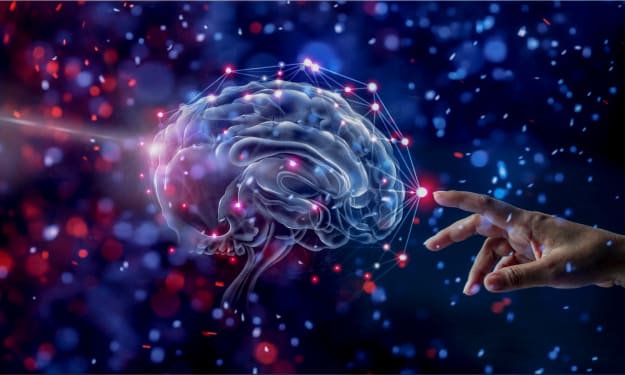How to Become More Trusting of Others
Not everybody out there is your enemy

There were days in my life when I felt the need to justify a misstep that occurred to people other than myself or to lash out at someone for making this happen. Similarly, at some point, I felt that there were people in my life who did me wrong and they were at fault for the unhappiness I sensed.
Situations like the former, in case they get repeated many times and are not handled appropriately, might lead to the creation of mistrust towards others.
As was stated in more general terms in the previous piece of this series, introverted people tend to close themselves off because of the lack of trust they show to other people.
But what exactly leads everyone, and especially introverts, to be on guard around others? Correspondingly, what can be done if someone reaches this point?
2 Reasons People Are Wary of Others
To be able to rely on other people again, it’s vital to understand what drives you to count mostly on yourself and be cautious around others.
There are two wide categories as to how this can happen; each with its possible ways to counter the source of your lack of trustworthiness in others. Try to identify as you read the piece which one (if not both) you resonate with most to be able to use the appropriate solution later stated in the article.
Moreover, by comprehending why people might be wary of others, you will gain useful insights about other people in your life that might fall into one of the 2 categories; something that can help you understand their side of things.
Past experiences
Imagine you are back in the times you were a kid and you give your favorite toy to some other kid to play with, but then it refuses to give it back to you. You try to get it back but to no avail. Furthermore, other kids or your family members don’t do anything to help you retrieve it.
At that point, your dissatisfaction programs your mind into thinking that giving something of value to someone might result in you losing a precious asset in your life.
This will make you cautious the next time someone tries to get something from you since your mind will try to remind you of the outcome of the last time you trusted someone with a valuable thing.
Now, what do you think would happen if situations like this get repeated over and again in your whole journey from kid to adult?
Be it romantic partners cheating on you, to people in your work environment getting promoted with unfair means, your mind will try to shield you from negative emotions deriving from such circumstances by assembling a psychological barrier in the form of distrust against other people.
Think of this like an erected wall and the trust you put in others being a water flow. The water won’t be able to flow past this wall if it gets robustly built. And the more times you feel like people have done you wrong in life, the stronger this wall will become.
False beliefs
Beliefs are formed whenever our mind makes a connection between a group of people or a situation we find ourselves in, and an emotion. They are greatly associated with our past experiences.
Our minds supposedly use them to reinforce a certain behavior towards various circumstances that we might encounter in life so that we can defend ourselves from negative outcomes or propel ourselves towards positive ones.
Imagine for a brief moment that you have dated throughout the years some people and you found out that all of them have cheated on you after a varying number of months.
Each time that happened it left you, of course, with a sour test in your mouth. You got hurt a lot every single time because while you believed in the other person they betrayed that trust in the end.
Every time you learn this painful truth you usually start to look for two things. One, the cues that can lead you to see this through earlier so that you can get harmed a lot less or avoid it completely whatsoever.
Two, the characteristics of the other person that exemplify this kind of behavior so that you can avoid these types of people.
The moment you say:
“All men/women cheat so I can’t trust anyone or otherwise they will hurt me”
Is the moment where your belief is completely formed. That’s also when it will become extremely difficult to find reasons to erase or alter it.
That’s the beauty and the curse of beliefs. The ones that can help us grow as individuals can’t be changed easily, whereas the same goes for the ones that can impair our daily lives.
False beliefs, therefore, are the ones that won’t help our progress as humans since they are developed to blame external sources for every past suffering we went through as a potential countermeasure for that.
Ways to Build Your Trust
Everything isn’t futile though. As I have said in the past, 50% of the solution lies in comprehending the reasoning behind a behavior, pattern, or thinking process.
The other 50% is somewhere among the lines of the practical implementation of any method that you believe suits you best for countering the problem.
1. A shift in perspective
This method, in my opinion, can be used to approach nearly every possible threat or problem you face. I’ll stick to the trust issues though.
What you think you attract. Whenever you are thinking that people will inevitably betray you, they so shall do in the future.
If you approach another human with thoughts on your mind of the like:
“I must be cautious of them in case they have ulterior motives.”
“I must be careful not to disclose much information about myself, in case they want to use that against me.”
Then, you will end up either losing a person who you could rely on or even worse, making them be on guard around you and eventually betray you in some way or another.
That’s because these thoughts that you are holding to yourself will unavoidably show up in your body language, manner of speaking, or way of acting.
Such signals usually don’t go unnoticed by the other individual; meaning that this will either drive them to avoid you or get the better of you first before they supposedly get done by you.
So my tip here is to try to see the harmful occasions that occur in your life as part of your journey; as a learning experience that facilitated in shaping you as an individual and progressed you further as a human being.
Whatever you face aids you in seeing the potential pitfalls in life beforehand or helps you notice the destructive patterns that either you or others have which can lead to situations that cause you harm.
Become the master of your mind and don’t let the situations become the master of you. Earl Nightingale is the perfect start for achieving such a feat.
2. Counter your false beliefs
What goes without saying is that you ought to find any formed belief within you that doesn’t boost your growth as a person. After that, you have to inquire about their reasoning to the point that you can’t support that belief anymore.
Firstly, to find your false beliefs, you have to question your thinking process surrounding any topic that includes trust. To do that, try to notice what your initial thoughts are when encountering a person or a situation that involves another individual.
“They are at a lower position in the company than me so I can’t trust them or otherwise they will use the information to get my position.”
“She is a woman so she can’t be good at driving a car”
“You can absolutely never trust any stranger”
And the list goes on. These are all examples of beliefs that can be formed in your mind through past experiences, societal stereotypes, or family opinions.
When you catch a glimpse of such thoughts, try to question their validity with a detailed explanation based on facts. Our brain isn’t programmed to think only emotionally. It’s heavily based on logical assumptions as well.
“Has this particular person shown me anything that can make me regard them as untrustworthy, based on my previous experiences?”
“Have I driven alongside every woman on earth and seen with my very eyes that they make more mistakes than men?”
“Why don’t I put this statement to the test and talk to another human unknown to me and see where this leads me?”
Final Thoughts
Trusting other people is hard sometimes. I get that. We all have lived through painful experiences in the past that make us wary of others.
But don’t let these negative emotions consume you and guide you; be it fear, disappointment, sadness, etc, the path they light on just doesn’t work.
You are more than the unfortunate events that occurred to you. Don’t let yourself lose the positive effects of trusting others and building healthy and lasting relationships with them.
You can further support my work through Ko-fi here:
This article was originally published on Medium at Harrys Stratigakis






Comments
There are no comments for this story
Be the first to respond and start the conversation.